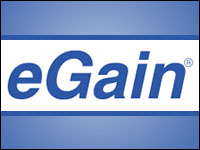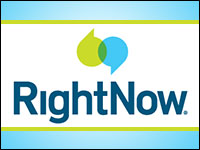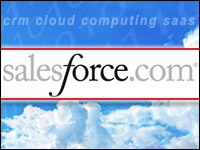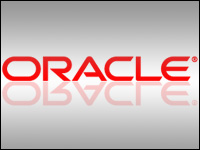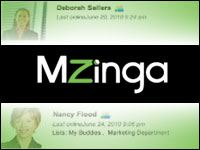
With its social software platform Mzinga OmniSocial, Mzinga’s goal is to deliver a role-based application with CRM capability that a company can then repurpose to collect information from its customers, CEO Alan Nugent told CRM Buyer.
Rather than concentrating on traditional CRM, Mzinga focuses on the enterprise network side to help companies create a collaborative environment, Brent Leary, cofounder of CRM Essentials, told CRM Buyer. They can then connect with customers and keep them engaged by sharing information and enabling them to share information with other customers, Leary explained.
“They’re another kind of platform player,” he said of Mzinga.
Faster Than a Speeding Tweet
A key part of Mzinga’s social CRM functionality is the ability to integrate with other solutions and leverage community-oriented social apps, Nugent pointed out. More companies, particularly larger companies, are jumping on the social CRM bandwagon this year.
“We’re seeing considerable interest,” said Nugent, because more companies are looking for ways to improve internal connectivity among their employees, as well as gain a better understanding of external customers and partners.
The speed at which social media moves may pose an especially difficult challenge for larger companies that are trying to establish a positive presence, marketing author Michael Port told CRM Buyer. Customers are more likely to complain on social networks, and larger companies may not know how to deal with negative complaints on the social Web, he pointed out.
“Social media has the tendency to spread quickly,” Port warned. Larger companies may be seen as more impersonal, whereas a smaller company may be more likely to engage with customers through the CEO’s tweets, he said.
Interest in community-building, greater openness, the ability to connect, and collaboration is currently rising, Nugent pointed out. Businesses want to use social networks but are not sure how to do it safely, securely, and in a way that is compliant with their policies.
Multilevel Integration
Mzinga OmniSocial is a social CRM solution that allows enterprises to support and integrate existing CRM apps such as Salesforce.com on multiple levels, Nugent explained. Mzinga seeks to understand and adopt the security model of its clients, working with its clients’ policies, rather than try to enforce a pre-existing model upon them.

Mzinga clients do not have to deal with an additional log-in layer, said Nugent, because Mzinga copies existing security information. By bringing social CRM into business processes, Mzinga can integrate at the content level and allow users to extract information from content.
Customer service support representatives can then access customer account information directly. Mzinga OmniSocial also offers a way to integrate with popular social networking sites such as Twitter and Facebook, Nugent said.
“It’s a necessity these days,” he opined. Although companies still tend to resist granting access to those sites to their employees, a strong need exists because customers are migrating to social networks.
Social CRM Changing Traditional Call Centers
The rise of social CRM is changing the way companies use call centers. Call centers will become more integrated in social media, Port predicted.
Social networks will not replace the traditional call center entirely, because companies will not be discarding them, Nugent pointed out. Instead, social CRM will augment the traditional call center. If a client, especially a small business, relies heavily on call centers, Mzinga will accommodate the customer’s requirements.
“We kind of have to tiptoe around it,” he stated, noting that Mzinga’s philosophy is to “design for change,” not change the design. In keeping with that axiom, Mzinga’s core product functionality remains the same, but it allows flexibility in fringe areas via APIs.
Overcoming Resistance
Social networks are allowing customers to become self-organizing and build communities where customers can listen to other customers about their experiences with a company.
“It’s just more naked now,” Nugent said.
This development has some companies on the defensive and suspicious of social media in the same way they were initially suspicious of the impact other new technologies, such as email, would have on company culture, he observed.
Having a champion within the company to promote the benefits of social networks can help overcome its resistance to adopting social CRM, suggested Nugent, as would working with a legal team to get the right policies in place.
Some companies have responded by trying to create their own communities for customers, he noted. This gives them a way to help control bashing, but it also gives them an opportunity to be much more responsive to customer demands.
Analytics and Mobility
Social CRM presents companies with the challenge of sifting through incredible amount of data, requiring advanced analytics to meet that challenge. Mzinga strives to offer companies reporting and analytics capabilities that allow them to analyze and present the data, Nugent said.
The growing use of mobile devices such as the iPhone, Android and BlackBerry is another trend companies are dealing with. Mobility is going to become even more important in the future, Nugent opined.
“We have a couple of mobile clients today,” he said, and Mzinga is attempting to meet the growing demand by repurposing content for mobile delivery. “We’re beginning to put that in place today.”

